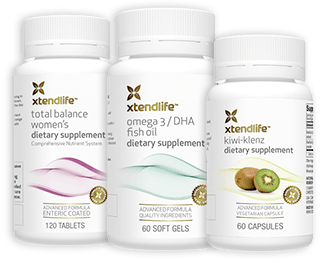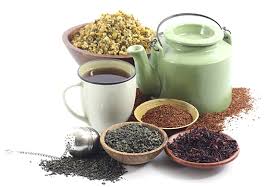The Many Dangers of Artificial Sweeteners
The government allows several different artificial sweeteners to be used in our food, drinks, and even some medications. But are they really safe? Do they actually cause people to gain more weight or even develop an illness such as cancer or Alzheimer's?
Here are some facts about the various artificial sweeteners out there. You can make your own conclusions after reading this!
Saccharine (Sweet 'n Low):
Saccharine was the first artificial sweetener to make its way into food products, as it first became popularized in the early 20th century. People believed it was a healthy alternative to sugar for people with diabetes. However, the product is derived from petroleum. In the 1970s, animal studies suggested that saccharine might cause cancer of the ovaries, uterus, bladder and skin, among other parts of the body.
Instead of banning it, the USDA just required manufacturers to place a warning label on any products containing saccharine: “Use of this product may be hazardous to your health. This product contains saccharin, which has been determined to cause cancer in laboratory animals.”
In 2000, the warning was removed. Scientists, doctors, and bureaucrats haven't reached a consensus over saccharine's safety. The American Medical Association still cautions children and pregnant women to avoid the sweetener since it isn't known for sure whether it actually causes cancer or not.
Aspartame (NutraSweet, Equal):
When aspartame was introduced in the 1960's, people were suspicious of it because many had heard about the animal studies on saccharine. Instead of being made from petroleum, aspartame is made from a combination of the amino acids phenylalanine and aspartic acid. Numerous animal studies suggested that aspartame might cause brain tumors, and the FDA banned aspartame three times. However, after numerous lawsuits and further studies conducted by the FDA, aspartame was placed back on the market.
While not everyone agrees that aspartame causes brain tumors, there is a general agreement that aspartame is an “excitotoxin” like MSG that overstimulates nerve cells in the brain. Chronic overstimulation of nerve cells in the brain could lead to a variety of illnesses such as seizures, Alzheimer's, Parkinson's, or brain cancer.
Products made with aspartame have a warning label stating that the product contains phenylalanine. This is because some people who have a rare genetic disorder known as phenylketonuria (PKU) could die if they consume phenylalanine. However, this amino acid is naturally present in a variety of protein foods, including meat, fish, eggs, milk, and soy.
Sucralose (Splenda, etc.):
Sucralose was approved by the FDA in 1998. It's actually made from sugar, but is chemically altered by adding three chlorine molecules in place of three hydrogen-oxygen molecules. The body is unable to metabolize sugar in this form, so no calories are absorbed. Many people prefer sucralose to aspartame or saccharine because it supposedly doesn't have the bitter aftertaste that the other sweeteners have. Sucralose is 600 times sweeter than sugar, so only a tiny amount of it is needed to impart the sweetness of sugar.
There are some claims on the internet that sucralose may cause conditions such as fibromyalgia, headaches, weight gain, brain fog, insomnia, and other problems. Most of the claims are anecdotal stories from people who felt relieved of certain symptoms when they stopped consuming sucralose. However, there have been no official studies to date providing evidence of these claims.
Stevia:
Stevia is one of the most recent non-caloric sweeteners introduced in the United States. It hasn't received the skepticism that the artificial sweeteners have gotten, most likely because the sweetener is made from the leaves of the stevia plant. This plant is native to Paraguay, and the leaves have traditionally been crushed, powdered, and used as a sweetener. The plant can grow in a variety of climates and the Japanese have been using it as a sweetener for several decades.
Despite stevia being “all natural,” some health enthusiasts eschew the patented, highly concentrated, white stevia powder that is readily available in most grocery stores and also used to sweeten some brands of soft drinks and flavored waters. They claim this form of stevia is too processed, and might be problematic when used over the long term. Some purists prefer to grow the stevia plant in their own garden, and then crush the leaves to sweeten foods and beverages in the traditional way.
The Bottom Line on Artificial Sweeteners
Although we all know that sugar isn't good for us, according to the latest studies and mounting anecdotal evidence, artificial sweeteners might be even worse. The only benefit they provide is fewer calories, but since they might actually cause weight gain anyway, what's the point?
Aspartame, which is found in countless products including the ever popular diet sodas, might just be the worst of the lot as far as your health is concerned. Stevia appears to be a better bet but perhaps not the stevia you find at your local market.
Is the occasional iced tea with splenda or cake sweetened with saccharine going to kill you? Of course not. But as with anything else, consume these foods in moderation. Don't get caught up in the false notion of zero calorie artificial sweeteners being the key to losing weight and achieving better health. The truth is quite the opposite!
Related Articles:
return to the HSG home
Resources...
Search our site...
PREMIUM SUPPLEMENTS
The most advanced herbal supplements on the market
BULK HERBS AND TEAS
Need bulk herbs, teas, supplements and capsules?

